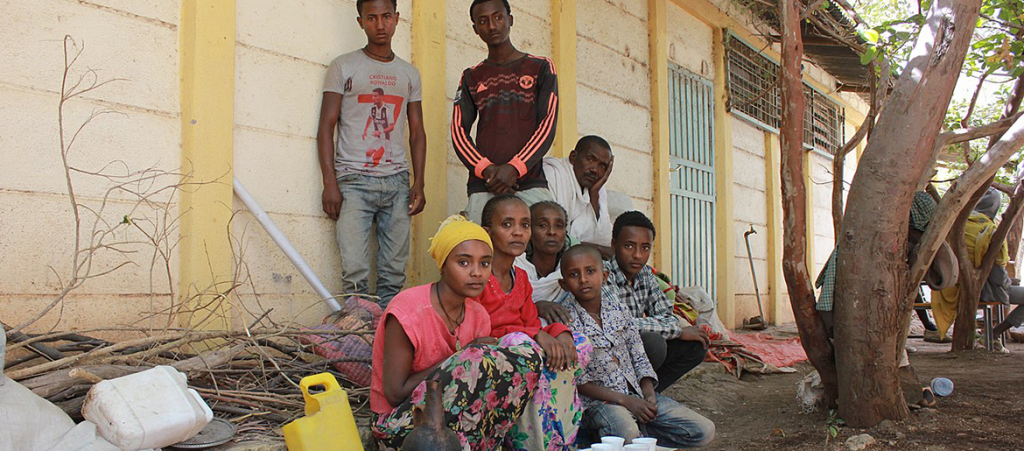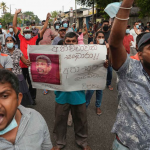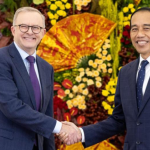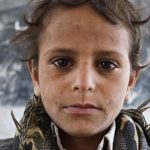
Ethiopia is now approaching two years of a bloody civil war. The fighting between Prime Minister Abiy Ahmed’s forces and the rebel Tigray People’s Liberation Front has caused thousands of deaths, displacement, and a region-wide famine. With “de-facto blockades” to humanitarian aid and no peace in sight, the UN has deemed it the “worst humanitarian crisis in the world”.
Here’s a basic explainer on how Tigray, Ethiopia got here and what needs to happen next.
The historical context
Tigray is a region in the north of Ethiopia. In the 1970s and 1980s the Tigray People’s Liberation Front (TPLF), fought a war to seize control of the government from a military junta. After this, the TPLF became the leader of a four-party coalition that governed Ethiopia from 1991.
Under this coalition, Ethiopia became more prosperous and stable but concerns were routinely raised about human rights and the level of democracy. This is because although the coalition gave autonomy to Ethiopia’s regions, it still retained a tight grip on the central government. Eventually, protests of discontent led to a government reshuffle that saw Abiy Ahmed appointed to prime minister. Mr Abiy dissolved the coalition in 2019, set up the new Prosperity Party and removed Tigrayan government leaders accused of corruption. He also ended a long-standing territorial dispute with Eritrea – which shares a 1000 km border with Ethiopia, including the Tigray region – earning him a Nobel Peace Prize in 2019.
These moves concerned people in Tigray. The TPLF saw Mr Abiy’s reforms as an attempt to centralise power and destroy Ethiopia’s federal system. Things really started to go downhill in September 2020, when Tigray defied the central government to hold its own regional election. The central government, which had postponed national elections because of the pandemic, said it was illegal. In response, the central government suspended funding for Tigray and cut ties with it in October 2020. Tigray’s administration took as a “declaration of war”.
Tensions increased and the catalyst came in early November 2020, when Tigrayan forces were accused of attacking army bases to steal weapons. Tigrayan forces say this was an act of self-defence due to the military build up around their borders. Mr Abiy said Tigray had crossed a “red line”, which justified a military confrontation. And that is exactly what happened: Mr Abiy’s government sent the Ethiopian National Defence Forces into Tigray. Eritrean soldiers and forces from the neighbouring Ethiopian region of Amhara also mobilised to reinforce Ethiopian troops.
What is the impact in the region?
The US government has characterised the conflict as ethnic cleansing against Tigrayans. It is estimated that as many as half a million people have died so far:
- 50,000 to 100,000 from the fighting;
- 150,000 to 200,000 from starvation, and;
- more than 100,000 from the lack of medical attention.
More than 61,000 people have fled for Sudan, and more than one million have been internally displaced. Nearly 100,000 refugees from Eritrea living in Tigray have been caught in the crossfire. In 2021 a regional official said Eritrean soldiers were holding Tigrayan women as sex slaves amid a wave of reported gang rapes. Eritrea denies the accusation. Millions of people, including children, are cut off from humanitarian aid and have limited access to shelter, water, food, and other basic necessities. Widespread famine is also reportedly unfolding across the region, due to the intentional use of starvation as a tactic of war. And the vast majority of residents of Tigray have had no access to telephone or internet service for more than a year.
The UN says 5.2 million people in Tigray, or 90% of the population, need help. Unfortunately, the Ethiopian government is allegedly blocking aid from coming through to civilians, with only 10% of aid trucks coming through. The UN has accused the government of a de facto blockade (which it denies); U.N. High Commissioner for Human Rights, Michelle Bachelet has asked Ethiopia for access to Tigray to investigate possible war crimes, but has been denied.
These are reportedly of Tigray youth marching into this senseless war. Do they realize their real enemies are the old men sending them to their death? Many are young, full of life & potential. The unnecessary sacrifice is quite shocking. pic.twitter.com/LVrZbXHotN #SayNoMore
— hermela aregawi (@HermelaTV) August 28, 2022
What would end this conflict?
International pressures did contribute to the Ethiopian government calling a ceasefire in March 2022 to allow aid into Tigray. In April and June, things seemed to be looking up with 20 aid trucks safely entering Tigray. The government even formed a committee to negotiate with Tigrayan forces, which appeared to be a public step towards peace talks. Unfortunately progress came to a halt when fighting erupted in the town of Kobo on August 24. Both Tigrayan forces and the government military claim the other side triggered renewed fighting.
Since the resumption of the war, there have been multiple air raids and continued violence over the region, with peace talks no longer a consideration. The Ethiopian government continues to want the TDF disarmed or militarily defeated, and the TDF continues to resist.
One possible step towards peace in the area is for the international community to impose an arms embargo. African security expert, Adib Saani explained to DW Berlin: “By now there should have been a united international arms embargo on the area because the more weapons, the more the warring parties become emboldened.” Harsher sanctions on both parties would also make it very difficult to continue fighting.
But according to Dr Mehari Taddele Maruto, a peace and conflict expert for Foreign Policy, this will only end if and when the warring parties need to declare a joint truce. For Tigrayans, security is a survival issue, and right now TDF is the only guarantor for their security. There must be a transitional security arrangement that leaves the TDF in charge of maintaining peace and security in Tigray – meaning all external forces must leave the region. This arrangement could facilitate humanitarian aid and fast-track the return of displaced people.
It would also give the warring parties a peaceful moment to negotiate a permanent ceasefire and prepare for a referendum on the future of Tigray if need be.




Comments are closed.